

Project «Voices of Jewish settlements. Vitebsk region.»פיתוח קשרי התרבות בין העמים של ישראל ובלרוס
|
|---|
Website search |
|
MainNew publicationsContactsSite mapVitebsk regionMogilev regionMinsk regionHaya Orshanskaya
|
Memories of Haya Yevseyevna OrshanskayaKUBLICHI – MY HAPPINESS AND PAIN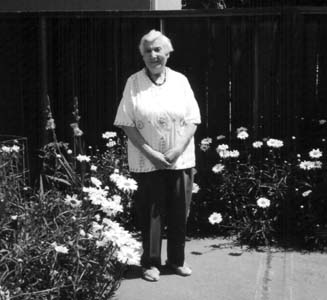 Haya Yevseyevna Orshanskaya.
Haya Yevseyevna Orshanskaya.
I am Haya Yevseyevna Orshanskaya (Bodneva), born on March 16th, 1922 in Kublichi, a small settlement in Ushachi region near Vitebsk. Our poor Jewish family consisted of seven people: parents, grandmother and four children. Grandmother Ester was my mother’s step-mother and was not on particularly good terms with her. They frequently argued, but she did love us, children. My father’s parents, grandfather Meer Bodnev and grandmother Elka, lived separately. Grandfather was renting a house, a barn and a smithy from a rich Jew. He died in 1934 and grandmother was left alone with two sons. Son Ishiye (Yevsey) – my father, lived in Kublichi with his family. The second son, Afroim, got married and lived with his family in Ushachi. ***Our settlement was quite small and streets received names only when rare automobiles started to appear. Our street was on the way to Lepel, and was consequently called Lepelskaya. Another street led to Polotsk, and its name was Polotskaya. The rest of the streets remained unnamed. 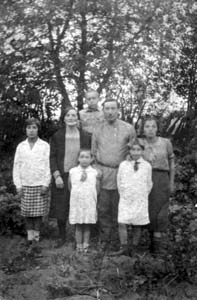 The Orshansky family.
The Orshansky family.Kublichi, 1934. Kublichi had a Jewish four-grade school located in a small house, which consisted of two rooms. The first room was for grades 1-3, their teacher was a young and very pretty woman. The other room was for grades 2-4 and they had a small, slim and very nervous teacher. One summer she committed suicide. The body was found in a well. After that the center of Kublichi was left without a well. ***Kublichi had three synagogues. One of them even had a Mikveh. Once, local Jews decided to play a joke on a merchant, who had asked an immensely high price for his hay. They pretended they accepted his price and asked him to load the hay through the open window and then ram it inside. After loading the hay, the men jumped in through the window and found himself in the Mikveh. Later this synagogue was turned into a hostel for students and then was closed. Only one synagogue was left in the end, but there was nobody to attend it. All the young people followed communist ideology, some had moved to cities and some were recruited to the Red Army. There were no Jewish organizations in Kublichi, nobody studied Hebrew or perhaps did it secretly. My uncle Adram Mordson from Leningrad came to Kublichi in 1960 and found out a lot about the tragic consequences of Nazi invasion. ***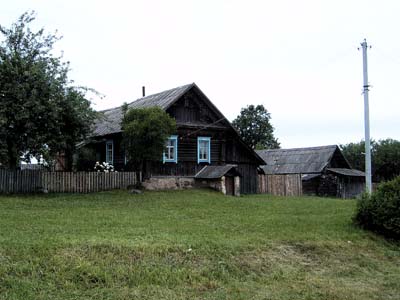 Kublichi. An old house.
Kublichi. An old house.
The ghetto was in Lepelskaya Street, where my mother and two sisters, Sonia (15) and Hana (17) used to live. My father escaped to a village called Antonovka, which is 2 km from Kublichi and was concealed there by the head of the collective farm. He failed to save my father, because a woman (I do not remember her name) reported on him. In 1968 I took my elder daughter Mary (named after my mother) to Leningrad to show and tell her about the siege which I was lucky to survive. We visited my uncle Abrasha, who wanted to tell me more about the sufferings that my father had gone through, but he burst into tears and had a heart attack. He promised to write me everything in details as soon as he got better, but he did not recover. ***In Kublichi Jewish holidays were celebrated only by old people. They attended the synagogue on Sabbath, cooked Matzot for Passover, but only until 1937, since after that flour was scarce. They did not visit each other and did not celebrate birthdays. Many even did not remember their children’s birthdays. I remember only three wedding ceremonies in Kublichi, only one of them was with a huppah. On Sabbath grandmother Ester lit two candles, closed her face with her hands and said her prayers. The first few words, I still remember, were about Sabbath blessing. Then she was whispering and it seemed to me that she was asking God to punish her step-daughter and I was scared. ***Kublichi had mainly Jewish population but there were also some Polish and Belarusian families. I do not remember any serious conflicts among them. As a matter of fact, most of the conflicts were among Jews. Leiba Gilman’s family had a dugout house. We, children, used to enter it through the window, which was leveled to the ground. In 1937 he bought a big house from another family and immediately someone reported on him: how can a poor Jew with his big family afford such a house? He must be a smuggler or a thief or a swindler! He was arrested and his kids had to grow up very quickly. The elder daughter Ekhe (Olia) went to work as a waitress, brother Folia sold apples which grew in his huge orchard. Ekhe vanished on the first days of the war; Folia escaped to the forest and joined partisans. Mother and sister Dveira were taken by Germans to Ushachi. 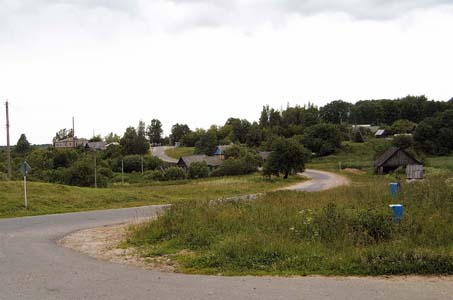 Kublichi – a shtetl.
Kublichi – a shtetl.
When the Jewish ghetto was being eliminated, Dveira hid in shock behind her mother’s skirt and fell into the grave together with the dead mother. When it got dark, she, wounded on the legs, got out and reached the village. She spent the night in a haystack in somebody’s barn. In the morning she heard someone milking a cow. She quietly called the woman. The woman turned out to be a local teacher, who later took her to an orphanage and gave her a Russian name – Vera. She survived and even found her brother after the war. His name was also changed to Kolia. They settled in Voronezh. At that time I lived in Novosibirsk and we wrote to each other. This is how I know this story. Here are some more examples. Vulf Ginzburg had two sons from his first marriage. They were reported to be involved in smuggling: crossing the border and brining goods from Poland. The elder son was arrested and the younger managed to run away. My uncle Afroim was reported on as well. He lived in Ushachi and worked in a small shop. One day he got herring and was allowed to sell only two fish per customer but some people did not get any. Then in came two young men in black leather jackets, searched the shop and found two kilos of fish under the counter. Uncle was arrested and sent to Polotsk. From there he was sent to Siberia. ***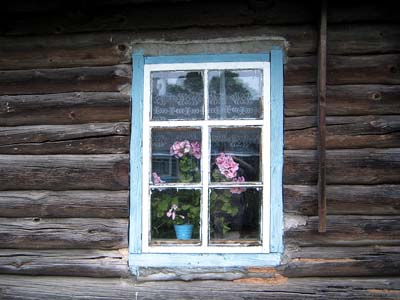 Kublichi.
Kublichi.
Everyone was scared to talk aloud about the approaching war. In 1939, in summer, we saw a plane, flying from Poland. Even though it was flying really high and only a small black spot was visible, it produced strong noise. Men determined it was a spy plane from Poland. It couldn’t have been a German plane, since everybody knew Germany and the Soviet Union had called a truce! The first Jewish refugees from Poland started to arrive at the beginning of September, 1939. They narrated sinister storied about German soldier who taunted Jews nobody really trusted them and nobody made a decision to leave. Only young men, who were not mobilized to the Soviet Army, joined partisans. ***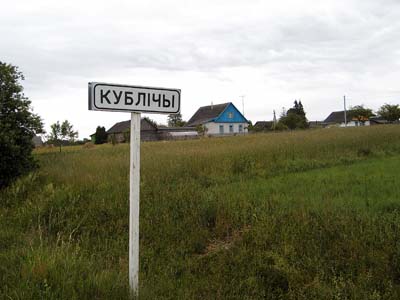 Kublichi.
Kublichi.
After the war I received letters from Kublichi dwellers Boris Rukhman, Simkha Meerson, Mera Sherman, Vera and Kolia Gilman. Owing to them I found out about the fates of some Kublichi Jews. At the end of December all the Jews who were in maternity hospital were forcefully taken to Ushachi. Gita Ginzburg, a shoemaker’s daughter, was pregnant and she went to labor on the way. She fell and was shot. Her mother Hana, fell on the dead body and was shot, too. The liquidation of the ghetto in Ushachi took place in January… Names of soldiers from Kublichi – those, who died in the Great Patriotic war.
|
|||
|
|
Jewish settlements in Vitebsk regionVitebsk • Albrehtovo • Babinovichi • Baran • Bayevo • Begoml • Beshenkovichi • Bocheikovo • Bogushevsk • Borkovichi • Braslav • Bychiha • Chashniki • Disna • Dobromysli • Dokshitsy • Druya • Dubrovno • Glubokoye • Gorodok • Kamen • Kohanovo • Kolyshki • Kopys • Krasnopolie • Kublichi • Lepel • Liady • Liozno • Lukoml • Luzhki • Lyntupy • Miory • Obol • Oboltsy • Orsha • Osintorf • Ostrovno • Parafianovo • Plissa • Polotsk • Prozorki • Senno • Sharkovshina • Shumilino • Sirotino • Slaveni• Smolyany • Surazh • Tolochin • Ulla • Verhnedvinsk • Vidzy • Volyntsy • Yanovichi • Yezerishe • Zhary • Ziabki • |
Main |
New publications |
Contacts |
Site map |
Vitebsk region |
Mogilev region |
Minsk region |